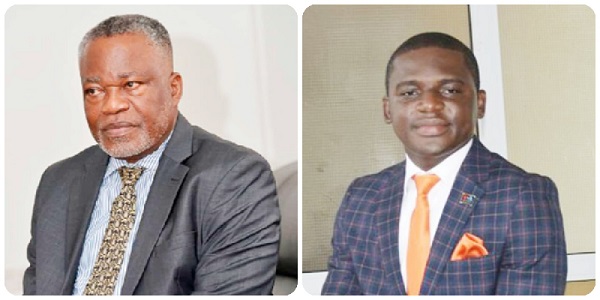Two security experts have charged the Economic Community of West African States (ECOWAS) to speak up against civilian heads of state who adopt unconstitutional means to prolong their stay in power, instead of waiting for coups d’etat to occur in some countries, only for the regional body to condemn such coups.
According to the experts, the use of unconstitutional means by civilian heads of state in the subregion had created fertile grounds for military insurrections, hence the need for ECOWAS to be bold to deal with unconstitutionalism before it got out of hand.
The experts, Col Festus Aboagye (retd) and Alhaji Irbard Ibrahim, spoke in separate interviews with the Daily Graphic yesterday on the latest coup d’etat in Burkina Faso.
They also called on ECOWAS to use diplomacy to find a solution to the coups d'etat in the subregion, instead of employing “a fire-fighting approach” by imposing sanctions, closing down borders with countries rocked by military takeovers and giving out timelines for such countries to return to constitutional rule.
Critical issues
Col Aboagye said dealing with issues that gave rise to coups was critical to preventing the coups, and cited corruption, among other things.
"If ECOWAS uses the same strength and vehemence with which it attacks coup makers to deal with civilian heads who change the constitutions of their countries to go for third terms, it would help,” he said, and mentioned Togo, Cote d’Ivoire and Guinea (until the military stepped in) as examples of places where ECOWAS failed to call the leaders to order.
Regarding the recent coup in Burkina Faso, he said although the action would not be a direct threat to Ghana’s stability, it would have implications for socio-economic activities, as the closure of borders, for instance, could affect trade.
That, he said, could go beyond the border, since people from places as far as Accra and elsewhere travelled to Burkina Faso to buy produce such as tomatoes, adding that since Burkina Faso was a landlocked country when the border was closed, heavy trucks commuting between that country and Ghana would not be able to do so.
Col Aboagye said the situation could also affect trade with Niger, another landlocked country.
Moreover, he said, if the situation deteriorated further in terms of jihadist threats, it could have serious repercussions for Ghana.
Impact of border closure
Alhaji Ibrahim, an international relations and security analyst, said the closure of Burkina Faso’s borders, for instance, could prevent Ghana from sharing intelligence with that country, a situation which could potentially expose Ghana to terrorist attacks.
Furthermore, he noted that Ghana had more to lose when countries surrounding it were engulfed in political turmoil, and called for the need for ECOWAS to avoid being belligerent in its approach and rather use diplomacy because without diplomacy, the situation in the subregion could degenerate into what he described as the formation of “a parallel regional alliance".
He said such an alliance would be a threat to sub-regional peace and stability, as other states rocked by coups d'etat would willingly join the alliance.
He expressed regret that already ECOWAS had lost 20 per cent of its member states, and that with the latest coup in Burkina Faso, it meant that three countries — Guinea, Mali and Burkina Faso — could bond together to form an alliance if the same approach of imposing sanctions was implemented, instead of diplomacy.
Alhaji Ibrahim equally advocated the need for ECOWAS to look at the situation where there was disenchantment among the young and agile West African population, giving rise to the coups d'etat currently being experienced in the subregion.
Bawku, border communities
He said the coups d'etat in neighbouring countries could equally affect border communities in Ghana.
When asked about the implications for areas such as Bawku, a border community in the Upper East Region, when there were military takeovers in neighbouring countries, as had occurred in Burkina Faso, Mali and Guinea, the expert said Ghana had so far been able to handle the ethnic conflict in Bawku appreciably well.
He said the current situations in Burkina Faso and Bawku were two dimensionally opposite scenarios, quickly emphasising that because terrorism thrived in an area of disenchantment, marginalisation, poverty, illiteracy, ethnic conflict and religious intolerance, it could be a platform for military exploitation by some groups who crossed over from Burkina Faso to border communities such as Bawku.
“Bawku's security challenge is purely ethnic conflict, while the spillover from Burkina Faso is rooted in terrorism; wherever there is instability, it provides fertile grounds for terrorism and militancy," he pointed out.
Background
Last Sunday, Burkina Faso recorded a coup d'etat when mutinous soldiers exchanged gunfire with pro-government forces. Gunshots were heard around the Presidency.
The coup Leader, Paul-Henri Sandaogo, overthrew President Roch Kaboré after a military takeover.

